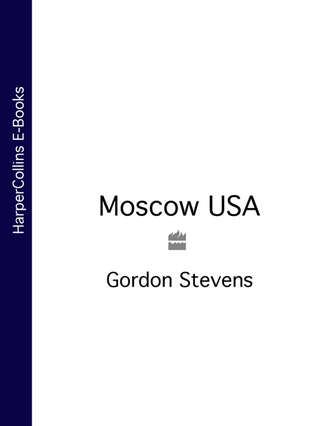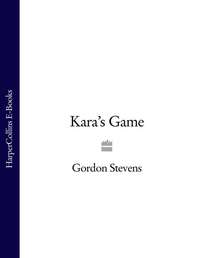
Полная версия
Moscow USA
The Black Label was in the drinks cabinet. Sherenko would have preferred Stolichnaya, but vodka might have threatened his cover. He threw a handful of ice into a glass, topped it up, and switched on the television. Perhaps he was right, perhaps he really was too old for this game; perhaps he was thinking of his family too much. At least Vorkov had talked about going home soon.
The local stations were all running news reports on the progress of Hurricane Bob up the eastern seaboard and the threat to Boston and the surrounding area the following day. He flicked to CNN, went through to the bathroom, began to strip, and heard the sudden change in tone of the newscaster.
‘This is a news flash. We are just getting reports from Moscow that there has been a coup in Russia. President Gorbachev has been placed under house arrest in his holiday dacha in the Crimea. First reports say that hard-liners from the KGB and the Red Army have taken over.’
The morgue was white-tiled and silent, an echo somewhere down a corridor and the smell of disinfectant in his nostrils. There were no staff present, no pathologists or attendants, no clerks to note down the details and ask for a signature against release of a corpse. Kincaid stood alone and stared at the body bag on the slab in the centre of the floor.
I was point man for you – for the past hours he had tried to push the confessional from his mind. I was babysitting you, Joshua; I was the one who was supposed to bring you through. I was the one in whose hands you put your faith and your trust and your life. And I let you down.
He ran his fingers along the body bag.
So what game were you playing, Joshua? Was whatever you were doing connected to the events in the Soviet Union? Langley was going ape-shit, of course: Langley and State and the White House and Christ only knew who else. Tanks on the streets of Moscow. Swan Lake being run non-stop on Soviet television, and the new order, the new Russia, which Gorbachev was promising, suddenly under threat and the image of a return to the bad old days looming large.
He unzipped the body bag and looked at the face.
The Agency had covered itself, of course. Pulled everything and everybody out of East 54th, so that even in the handful of seconds before the first blue and whites of the NYPD arrived there was no link. Just a businessman with an attaché case shot through the back. No ID, no name or plastic or driving licence.
Plus Langley had made certain arrangements. The Club took care of its own, even though they were from different sides. So not even Langley, in a way especially not Soviet Division, wanted Joshua to spend the statutory two weeks in a freezer in the county morgue at Belle Vue, then be consigned to a city burial along with the other John Does. Therefore Langley had made the call – discreet, person to person, the same way that Joshua had sought to contact Leo Panelli.
No autopsy, though, no incision in the chest, no rib cage cut open. Partly because Joshua had only been of use alive, partly to say to the opposition: he’s yours, we had nothing to do with it, so take him home and lay him to rest where his wife and his daughter can mourn over him. Whatever lies you tell them about where and how he died, because lie you will. As we would.
In forty seconds the footsteps would come down the corridor.
‘Sorry, my friend …’
He zipped up the bag and left.
Sherenko stood at the window and looked across the street at the first winds and the first black rain.
The epicentre of Hurricane Bob was scheduled to hit Boston shortly after four. Now it was 3.45 and the sky was black. Down the coast torrential rain and winds were whipping off roofs and throwing trees in the air as if they were the devil’s playthings. In Boston the streets were deserted and the city waited, emergency services on full alert.
On the television set in the corner of the room CNN was running updates from Moscow, retired military and intelligence specialists being wheeled in to comment, and politicians renting their opinions about what might or might not happen.
Sherenko turned from the window and flicked back to one of the local channels.
‘The epicentre of Hurricane Bob is five minutes from Boston.’ The newscaster was tense. ‘Do not go outside. Repeat, do not go outside.’
Sherenko went to the bedroom, stripped, and put on shorts and Nikes.
‘The epicentre of Hurricane Bob is one minute from Boston.’ The newscaster’s voice was almost shrill. The rain outside was horizontal and the trees bent in the wind.
‘Hurricane Bob is one minute, repeat, one minute, from Boston city centre.’
Sherenko stepped outside, locked the door behind him, and began to run.
Kincaid left Langley and drove to the bar on the edge of McLean which the old-timers used as one of their watering holes. O’Bramsky was waiting for him. The evening was closing in and the bottle of Black Label was on the table. Kincaid settled in a chair and nodded as O’Bramsky filled his glass. ‘So what’s new from Moscow station?’
‘A handful of politicians are standing up and being counted.’ O’Bramsky ran his fingers through his white hair. ‘Yeltsin’s in Moscow and on his way to the White House. The first crowds are gathering outside to defend the building against the army and the KGB, but there are reports that KGB Alpha teams are already in the building with orders to assassinate him.’
‘What about Joshua? How does he relate to what’s going down in Moscow?’
‘At this stage nobody’s sure. One theory is that he knew of the plans for the putsch but didn’t know who was behind it, therefore didn’t know who to alert in order to stop it, so he contacted us.’
They both knew what Kincaid was going to say.
‘And we let him down.’
Bram refilled their glasses. ‘Don’t take it personally, Jack.’
‘Difficult not to, Bram.’
Difficult to stand in the morgue at Belle Vue and not think that you betrayed the man in the bag. Difficult not to try and work out what little thing you might have done that would have made the difference.
He swilled the Black Label around the glass, downed it in one, reached across the table and poured them each another. ‘Funny, isn’t it? In five years nobody will remember what happened in August ’91. Nobody will remember the attempt to depose Gorbachev.’
‘What are you getting at, Jack?’
‘I guess that some things you remember for the fact that they were a crossroads for the world. Some things you forget, even though at the time the world thought they were cataclysmic. Some things you remember for what they meant to you as an individual.’
O’Bramsky looked across the table at him. ‘Like I said, Jack, don’t take it personally.’
At eleven the next morning Kincaid took his seat before the panel investigating the Joshua affair. No Jameson or O’Bramsky, he noted. Miller was present, so Ed had covered his ass, and thank Christ for that. Some faces from the seventh floor, plus a woman he didn’t know. Early forties, good-looking, ash-blond hair and cut-glass English accent. So London had been cut in on the deal somewhere along the line and were now demanding their pound of flesh.
In Moscow the crowd defending the White House had grown to a hundred thousand, the KGB Alpha teams which had been sent to assassinate Yeltsin had changed sides and were now protecting him, key units of the army were also going over, and the coup showed every sign of collapsing.
Where were you when you were first informed of Joshua …? the questioning began. When did you first hear the code-name Joshua …? Who told you and who did you speak to after that point …?
The Leningrad sun was hot on her back, and the sweat ran in streams down the faces of the men carrying the coffin. Anna Buskova stood at her mother’s side and held her mother’s arm. An hour earlier, before they had screwed down the lid, she had kissed her father goodbye for the last time.
Love you, she told him again now. Remember so many things, remember the toys you made me when I was young and before you and Mamma had any money, remember how you were away so much later. Remember the porcelain horseman you gave me. Remember not just the gifts you brought back when you returned, but how you brought them back. As if they were no more or no less precious than the dolls you made for me at the kitchen table.
And now, my father, you are dead. Now you lie in your KGB uniform, and the other generals have come to say goodbye, though the times are strange and the conversation before the service was muted and conspiratorial, as it will be after.
The coup has ended, probably Communism as well. All of which is irrelevant to me because the only thing I will remember about August 1991 is the fact that my father, whom I loved dearly, was taken from me.
The KGB still takes care of its own, though. So that when your body was returned to us, after you had suffered the heart attack, you were already in dress uniform, your eyes closed and your hands folded in peace across your chest.
A heron flew overhead. She heard the ruffle of its wings and looked up. The guard of honour snapped to attention and the first volley echoed into the sky.
The December snow was on the ground and the sky was a dark threatening grey. Anna Buskova picked her way between the headstones, the white of the snow like mantles on them, till she came to the mound in the corner. In the spring, when the earth had settled, they would erect a proper headstone, now the grave was marked by a simple cross.
The snow fell from the sky again, and her hands and feet were cold. She removed her gloves and took the envelope from the pocket of her greatcoat. The envelope was thick, as if something was folded inside it. She took the second envelope from it, then the letter from inside it. The envelopes had been delivered by an American friend ten days earlier, when she was in Moscow. The snow was falling more heavily now. She brushed the flakes from her eyelids and opened the single sheet of the letter. There was a date on it, a date in August, but no names, neither hers at the top nor her father’s at the bottom.
She wiped the snowflakes from her cheeks, except they were not snowflakes and began to read.
When you receive this it will be over. If I have been able to achieve what I am about to do, then I will tell you; if not, then others might not. If others tell you, judge them, not me, by what they say. What I do, I do because I remember the day you were born and wish that others might know such happiness. What I do, I do because even now I know I have a smile on my face at the memories of our family together, and wish that others might also smile. But that they may smile in freedom and in joy. What I do now, I do because I am a patriot. What I do now I do for Mother Russia. Always be strong, always smile.
She wiped her cheeks again, then she folded the sheet of paper and placed it inside the first envelope. The envelope had no name or address on it. Then she folded it and tucked it inside the second envelope. The second bore the name and address of the friend in Boston who had hand-delivered it to her, the stamp in the top right corner was a United States 32 cents issue, and the postmark indicated Moscow, though the date and the state were blurred and barely legible.
Tomorrow she would bring flowers, she decided. Tomorrow, even though the snow would be deep and the ice would be packed hard, she would place the flowers on the grave of her father. Anna Buskova turned, placed the envelope in her coat pocket, and retraced the line of her footsteps.
The snow was turning to ice on the pavements outside and the windows of the bar were steamed with condensation. Sad night, Kincaid thought, sad faces: Jameson and Panelli, himself and O’Bramsky. Ed Miller there with them, even though he’d survived the night of the knives.
Miller rose, pulled on his coat, and patted each of them on the shoulder. Sorry, the gesture said. Can’t find the words, but you know how I feel. He turned and left, Jameson and Panelli followed him into the snow ten minutes later.
Kincaid called the waiter and asked for two more Black Labels. ‘Ironic, isn’t it?’
‘Why ironic?’
‘If Joshua had been aware of his death, then he would have thought he had failed. But he didn’t need to try anyway, because the putsch collapsed and the old days are over for ever.’
That morning the Soviet Union had ceased to exist.
O’Bramsky nodded. O’Bramsky hadn’t spoken much all evening.
‘So what did the enquiry report say, Bram? Because you’ve seen a draft and I haven’t.’
‘That Joshua was trying to make contact with us to prevent the Gorbachev putsch, and that his own people suspected what he was about to do, tailed him, and took him out.’
‘No other reason why he should contact us?’
‘Not according to the draft report.’
‘But we carry the blame.’
O’Bramsky laughed.
‘What about Moscow, Idaho?’ Kincaid asked. ‘What about the fact that Joshua made the first call from there?’
‘The enquiry will decide that Moscow USA was irrelevant, that Joshua was covering his tracks and trying to confuse us.’
Kincaid drained his glass. ‘So what you going to do now, Bram?’
‘What I should’ve done long time back; do up the house on the Chesapeake, paint the Hobie, and tell myself the last twenty-five years didn’t end like this.’
And what about you, Jack? – it was in O’Bramsky’s stare. I know that there’s something on your mind, but I can’t tell what.
‘I had a dream last night, Bram. I dreamt I met up with the bastard who took out Joshua. Actually I’ve had the dream every night.’
‘Why?’ O’Bramsky asked.
‘Because I feel guilty about Joshua, I guess. Almost as if I’d betrayed him.’
‘And it’s eating you up?’
‘Yeah, Bram, it’s eating me up.’
They stood to leave.
‘You got to shake it off, Jack.’ O’Bramsky pulled on his coat. ‘What happened was business, not personal. You can’t carry Joshua’s ghost with you for the rest of your life or it will devour you, every day you live and every second you breathe.’
They stepped outside. The snow was falling thicker now; as they walked down the street it was a mantle on their shoulders.
‘I know, Bram. But I’d still like to get whoever pulled the trigger.’
‘Forget it, Jack.’
‘Because it was business not personal?’
‘No.’ O’Bramsky sunk his hands deeper into his coat.
‘So why?’
The snow was falling even heavier; the sounds around them were muffled and the street lamps hung like halos in the white.
‘You know the game, Jack. You’re part of the Club. You know there’s no way the two of you will ever meet.’
1
Kazakhstan that August morning was like Kazakhstan every August morning: hot, the land flat and featureless and stretching for ever, and the ground below it running with wealth. ConTex had signed up three years before, and now operated an oilfield on the north-east coast of the Caspian Sea. ConTex was also hustling contracts elsewhere, which was why its head office was in Moscow.
Maddox rose at five.
Arnold Maddox, Arnie to both friends and colleagues, had been with the Consolidated Oil Company of Texas six years and had switched from Angola to Moscow nine months earlier. Maddox was late thirties, tall and lean build, hailed from Austin, Texas, and had been in exploration and production since graduation. He was married with two teenage boys, though his wife and family never accompanied him on his overseas postings. In the political chaos of Angola he had brought order and efficiency; in the frontier atmosphere which was the new Russia he brought an instinct for the local way of doing things which singled him out from many of the foreign businessmen now streaming east. Thus the night before he had spent four hours over black bread, local black caviar and Absolut vodka with the general introduced to him as head of the republic’s KGB, even though the KGB had been renamed and reorganized after the dissolution of the Soviet Union five years ago.
By seven he had tied up the remnants of paperwork left over from the previous day; at seven-fifteen, over breakfast of cheese, cold meats and black coffee, he held a final meeting with the local manager and security chief. By early afternoon he was back in Moscow.
The suites which ConTex occupied were on the eighth floor of a modern block off Tverskaya. Red Square and the Kremlin were 200 metres away, on the other side of the inner ring road, and the red and yellow of McDonald’s occupied the ground floor.
After Kazakhstan the office seemed the height of civilization: prints of ConTex’s various operations on the walls, cocktail cabinet, conference table at the end nearest the door, and Maddox’s mahogany desk in front of the window. PC to the right, a bank of telephone monitors, including a Stu-iii, to the left, mandatory family photograph in the middle and executive chair behind.
He checked with his secretary, asked her to get him a coffee, and called Dwyer on an internal line. ‘I’m back. Do we need to talk?’
Ten days earlier, and two months before they would even unofficially be known to exist, Maddox had acquired the preliminary details of a new exploration area, plus names and backgrounds of relevant officials and politicians, and ConTex had sent in Dwyer.
Dwyer came through, sat down and shook his head when Maddox’s secretary offered him coffee. ‘Looks like we’ll get what we want.’ Dwyer was Vice President responsible for New Business Development and on the main board. I’ll need five million.’ At this moment in time, and at this stage of the process. Because five million dollars was small beer. When it got really heavy you could put a zero on the end of that, and ConTex wouldn’t think it was out of place.
So five million, plus the one million Maddox needed for Kazakhstan to cover local wages, expenses and other payments. Delivery tomorrow and everything straightforward and routine. Three minutes later the request had been sent to Houston on the secure fax.
When Maddox and Dwyer left the office the early evening was warm. Maddox’s driver dropped Dwyer at the Balltschug-Kempinski, across the Moskva river from the Kremlin and next to the British embassy residence, then took Maddox to the former sanatorium, now a country club, where he leased a luxury chalet. At eight-thirty, having showered and changed, Maddox joined Dwyer for dinner.
The Kempinski was expensive, but the Kempinski was safe-relatively speaking, but everything was relative in the new Moscow. Black-windowed Mercedes and BMWs were parked outside, but black-windowed Mercedes and BMWs were parked outside everywhere nowadays. Guards on the doors, but it was only when there were no guards that you began to worry.
At nine-thirty they left the hotel, crossed the river, and walked past St Basil’s into Red Square. The evening was still warm and the sky was an almost transparent shade of blue.
‘You want a drink?’ Dwyer asked.
‘Where?’
‘How about Nite Flite?’
They crossed Red Square then dropped between the Arsenal Tower of the Kremlin and the sterner red brick of the Historical Museum into the tarmac area beyond. Even though it was late evening the area still milled with people: along the pavement to Ploshchad Revolyutsii the booths selling cigarettes and alcohol were crowded with shoppers. Opposite, on the pavement under the grey featureless mass of the Moskva Hotel, was a single stall selling drinks, a handful of wooden tables around it and cars parked in front of it. At the entrance to the subway under the inner ring road to Tverskaya and the Okhatniy Ryad metro station, there was another cluster of vendors – mainly men but two women.
The first woman was selling cigarettes. She looked mid-sixties, small and thin and stooped. She was wearing a cardigan, skirt, torn basketball boots, and a Michael Jordan cap which had long lost its shape and colour.
The second was taller and early fifties. On a tray in front of her, balanced on makeshift legs, were sets of audio tapes. Her hair was tied back, her back was straight and her dress was blue and clean and neatly pressed. A light coat was thrown over her shoulders and on the left side of her bodice she wore a row of medals.
They walked past her and down the steps into the underpass. The passageway was the familiar grey concrete, beggars and vendors lining the walls: a blind war veteran holding out his hands and a couple selling matryoshka dolls, a woman selling lottery tickets and more stalls selling military badges and fake icons. From the end nearest the metro came the sound of a string quartet.
They passed the musicians and took the steps to Tverskaya. The National Hotel was on the corner, Maxim’s nightclub on the ground floor below it and a fashion boutique next to it. Food stalls were spaced to the left, people eating at tables and a gypsy girl, thin and pretty, begging near them, her parents watching from twenty yards away. Beyond the shops the Intourist Hotel towered into the sky, Mercedes and BMWs were parked three deep on the road and along the pavement outside, a stretch limousine was pulled against the steps to the canopy over the entrance, and heavily-built young men in suits stood like phalanxes at the doors.
Ten minutes later they came to Nite Flite. Two well-dressed young women smiled at the thick-set man on the door and went in. Behind him a queue of tourists waited patiently. Maddox ignored the queue and went to the man on the door. Two more big men hovered in the shadows inside.
‘Full,’ the man told him.
Maddox reached inside his jacket for his wallet and snapped out two $50 bills. The minder took them, stepped aside and allowed them in.
The following morning Maddox spent ninety minutes in the office then took the 9.55 flight to St Petersburg. In London it was seven in the morning. Forty minutes earlier American Airlines flight AA106 had touched down from New York. Amongst the items unloaded and placed in bond were the six million dollars Maddox had ordered the previous afternoon. By the time they were secured in the bond area near Terminal 4 Zak Whyte had done his five miles, returned to the Holiday Inn at the edge of the airport, showered and changed, and taken the lift to the restaurant on the ground floor.
Zak Whyte was thirty-one years old: he stood six-three, weighed in at 190 pounds, and had been out of the United States Marine Corps two years. The security/courier company for which he worked, like others in related fields, had a propensity to recruit men of similar backgrounds. Pearce, the courier who would double up with Whyte on the Moscow run, had served nine years with the British Royal Marine Commandos, making corporal and ending his service with the elite Mountain and Arctic Warfare cadre.
When Whyte entered the restaurant Pearce was already at a table in the corner furthest from the door. Whyte helped himself to orange juice and full English breakfast, and sat down.
‘You all right?’
Pearce’s coffee was untouched. ‘No.’ The belt of pain tightened across his abdomen.
‘What is it?’
‘No idea. Been up since three this morning.’ He forced down some coffee. ‘What time we due out?’
‘They’re collecting us at eight-thirty, pick-up at eight forty-five; the flight’s confirmed as leaving at nine-fifty.’
They always cut it tight. Nobody liked hanging around with what they would be carrying, even in London.
‘Should be okay by then.’ Pearce excused himself and returned to his room.
When Whyte checked him at seven-thirty he was motionless on his bed; at seven forty-five he had not moved. At eight Whyte checked with the office that the pick-up car was en route, notified them of Pearce’s condition, suggested a doctor, and was informed that no other couriers with the relevant visas were available at such notice. He would therefore have to carry the two bags himself, even though they normally doubled up if they were carrying over a million, especially going into Moscow. But one man could carry the two bags, and the boys would meet him the moment he stepped off the plane at Sheremetyevo.






